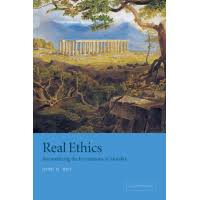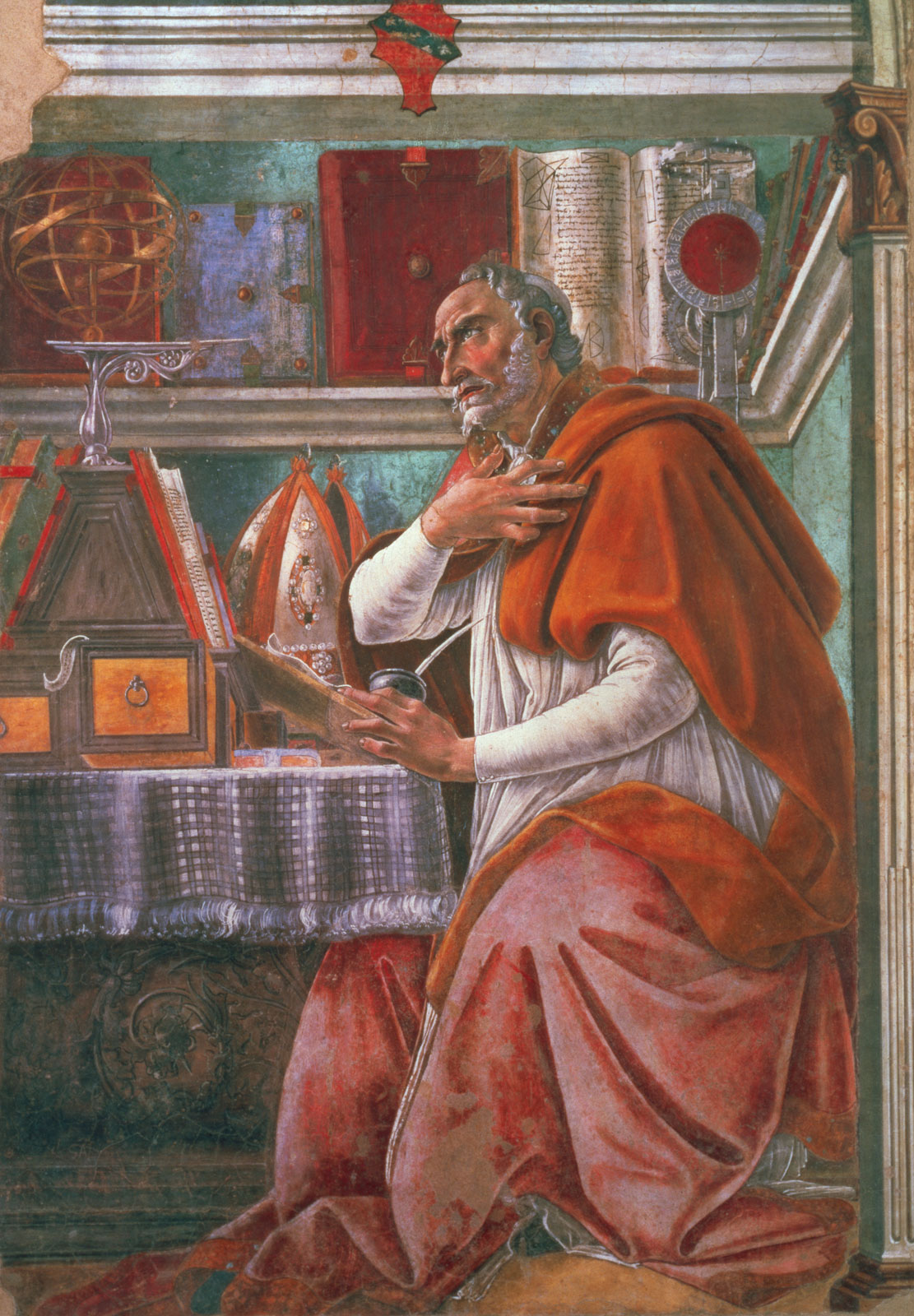
John Rist, Augustine, Sartre

Greetings folks. I have been fascinated by how many philosophers of different stripes turn to Augustine. This can be found in Descartes, Heidegger, Sartre, Camus, Derrida, etc. I currently am reading John Rist, Real Ethics: Reconsidering the Foundations of Morality. At one point he speaks to how one way of understanding Sartre is to see Sartre as affirming Augustine's anthropology (in a very general sense) while denying Augustine's doctrine of God. Here is what Rist writes:
Reflect on the universe proposed by Augustine without Augustine's God and we are left in the universe of Sartre, where values are constructed at random whenever 'honest' folk see the necessity, where hell is other people seen as ineluctably predatory, and where life itself seems an absurdity which can only be transcended in the ultimately hopeless or destructive pursuit of a genuinely 'free' act. (p. 43)
Rist's book is proving to be a great read.
- Details
- Written by Brad Green Brad Green
- Category: Recommended Reading Recommended Reading
- Published: 06 May 2017 06 May 2017
- Hits: 3063 3063
Bergson on Intellect, Intuition, and Instinct
Henri Bergson (1859-1941) is an extremely interesting figure. Bergson contended that in animal (and I would think human) development, there are two traits/emphases/characteristics which are at the heart of things: "instinct" and "intelligence." Bergson makes an interesting move. One might think that intelligence would be the key to true philosophy (if choosing between "instinct" and "intellect"). Au contraire! Rather, it is instinct which is key. Instinct, over times can/does morphe into "intuition," and it is intuition which is central to philosophy. So, as Gary Gutting summarizes: "Instinct then becomes intuition, the privileged vehicle of philosophical knowledge" (Gutting, French Philosophy in the Twentieth Century, 72).
Interesting indeed. What this does is, in a sense, put intellect in its place. It does not deny the importance of intellect, but does say that intellect must be seen in relationship to other ways of coming to terms with the world. I look forward to continuing reading.
- Details
- Written by Brad Green Brad Green
- Category: Recommended Reading Recommended Reading
- Published: 26 April 2017 26 April 2017
- Hits: 3972 3972
Henri Bergson and the Creation of the Self
One of the things I have been doing on my research leave is read (surprise!). Currently I am reading Gary Gutting, French Philosophy in the Twentieth Century. Besides just interesting, I hope to write one day a biblical theology of knowledge. That interest has led to reading this and that, including some philosophy. A few years ago I read Husserl, which led to reading several things by Albert Camus and Jean-Paul Sartre. The current chapter in Gutting's book is on Henri Bergson. I thought the following quote was fascinating, and something of a good summary of the modern mood, and the modern notion of the self:
"for a conscious being, to exist is to change, to change is to develop [se murir], to develop is to go on creating oneself endlessly."
(This is from Bergson's work L'evolution creatrice, and is quoted in Gutting, 66).
- Details
- Written by Brad Green Brad Green
- Category: Recommended Reading Recommended Reading
- Published: 26 April 2017 26 April 2017
- Hits: 3606 3606
Dallas Willard and the Unhinging of the American Mind
And while Willard is on the mind, here is the link to a super essay, "The Unhinging of the American Mind: Derrida as Pretext." I stumbled onto this essay a little over twenty years ago, I believe. I found it very helpful. His basic argument is that universities have ceased to be institutions which are interested in passing on knowledge.
He writes:
The heart of the university crisis is, in my view, the simple fact that its institutional structures and processes are no longer organized around knowledge. The life of knowledge is no longer their telos and substance. Knowledge and knowing is not what is had in view or consciously supported by them. The people in charge are in fact only very rarely thinking about knowledge. It is not what the place "is about" in the mental processes of those who determine, or think they determine, curriculum, program and personnel, what is to count as "good work" or bad, and who is to be rewarded in various ways or not.
Given recent events at various universities, Willard's basic point simply continues to be vindicated. It is a very good read.
- Details
- Written by Brad Green Brad Green
- Category: Recommended Reading Recommended Reading
- Published: 26 April 2017 26 April 2017
- Hits: 3043 3043
Dallas Willard on Reason and the Benedict Option
I think anytime I have read Dallas Willard, I have benefitted immensely. Today I was reading his essay, "How Reason can Survive the Modern University: The Moral Foundations of Morality" (found here). In light of Rod Dreher's The Benedict Option, I found the following quote very interesting and helpful:
The details are far from clear to me, but I think something like the development of a community of moral understanding in the Christian tradition must be the answer to our current situation. This seems to me the only thing capable of redeeming reason, of providing the moral substance and understanding that can make the life of reason possible. Though I do not share MacIntryre's philosophy of mind and logic, and believe that the understanding and practical appropriation of moral insight is much freer of specific communities than he supposes (There is a human nature, in my view, and it is fairly obvious), I am sure that the restoration of moral knowledge to our academic culture will require a certain community of professionals, academics and intellectuals devoted to that cause over a lengthy period of time.
The essays at Willard's website (here) are a goldmine. They are free, but I still wish someone would put them all together and publish them. Tolle lege!
- Details
- Written by Brad Green Brad Green
- Category: Recommended Reading Recommended Reading
- Published: 26 April 2017 26 April 2017
- Hits: 2754 2754
Augustine on the Error of a Certain Interpreter

Greetings. We are in the Netherlands, where I am teaching a class on Augustine at Tyndale Theological Seminary. Ran across the following in preparing for class. Augustine wrote a volume, Answer to an Enemy of the Law and the Prophets. Some real gems on how to approach the Bible, the nature of language about God, etc., is found in this great piece. On the rainbow in Genesis, did God need a sign because of a poor memory (i.e., because God needs to be "reminded")? No, says Augustine. In criticizing the person in error (who would suggest that God perhaps does have a poor memory), Augustine writes:
"The fellow does not know what he is saying at all, not because his memory is dead, but because his soul is dead." (I.20.43). My!
- Details
- Written by Brad Green Brad Green
- Category: Recommended Reading Recommended Reading
- Published: 03 January 2017 03 January 2017
- Hits: 3255 3255